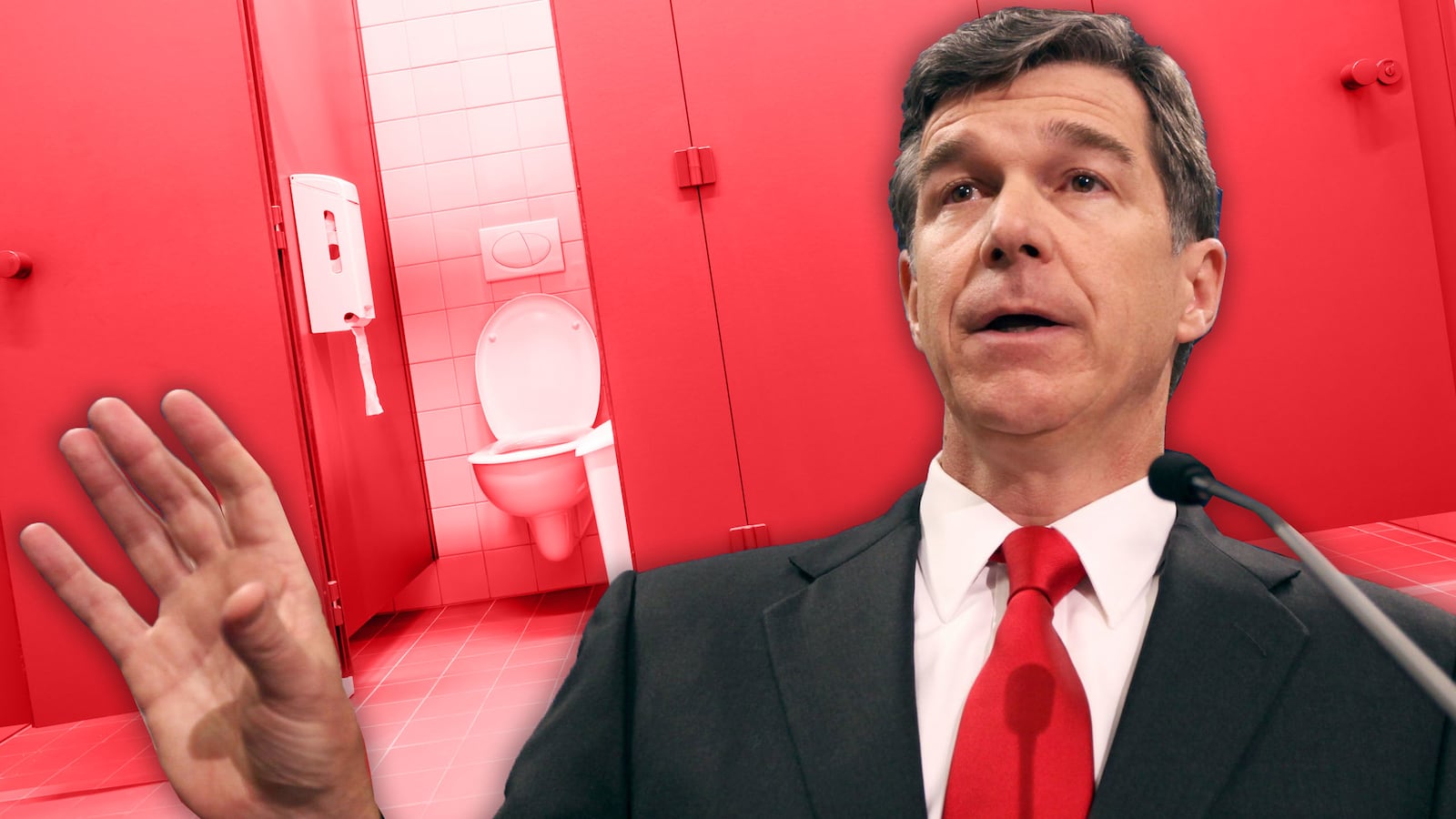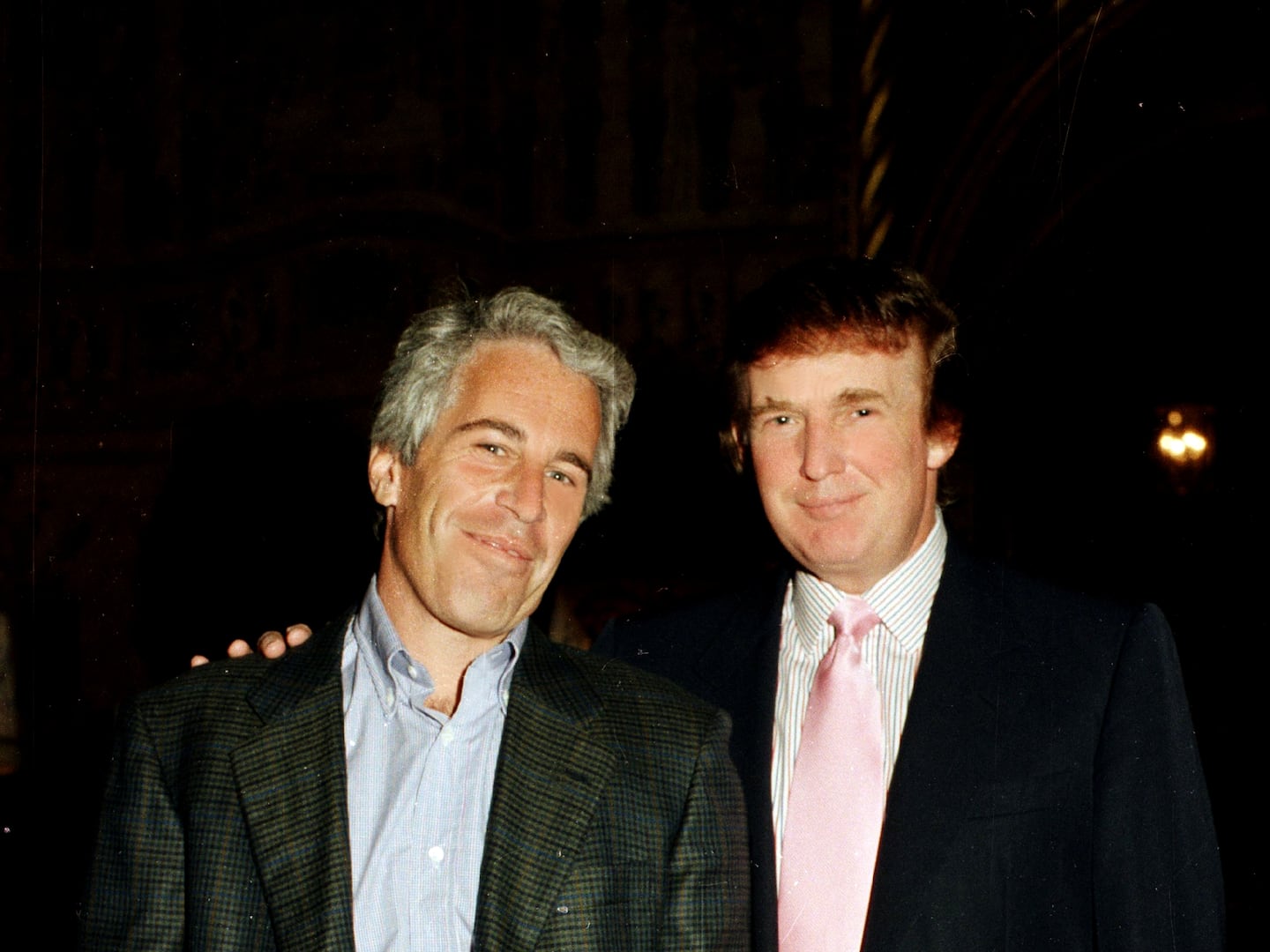North Carolina’s anti-LGBT law HB2 died almost as suddenly as it was born—except that it didn’t really die, it just changed shape.
Over the course of a single Wednesday last March, the North Carolina state legislature passed a bill barring municipalities from passing LGBT-inclusive non-discrimination ordinances and requiring transgender people to use bathrooms corresponding to their birth certificates.
Now, after a full year of backlash from citizens, corporations, civil rights groups, small business owners, celebrities, and sports leagues like the NCAA, North Carolina’s new Democratic governor Roy Cooper has signed an overnight, last-minute “compromise” that repeals HB2—kind of.The new bill, HB142 still bars local governments from passing or amending their own non-discrimination ordinances pertaining to “private employment practices” and “public accommodations” until 2020.
It also grants the North Carolina state legislature exclusive authority over regulating access to public “multiple occupancy restrooms, showers, or changing facilities.”
In other words, individual cities like Charlotte will not be able to ban anti-LGBT discrimination for at least three years. And although HB2’s unprecedented “birth certificate” requirement will no longer be state law, individual state agencies and institutions—including the University of North Carolina—will not be allowed to regulate access to multi-stall bathrooms without the approval of the legislature.
LGBT rights groups first learned of the reported “compromise” between Governor Cooper and state Republican leaders Senator Phil Berger and Representative Tim Moore late Wednesday night as a reported ultimatum from the NCAA loomed overhead: repeal HB2 or lose championship events through 2022.
Those LGBT groups universally condemned it with telling uniformity.
Mara Keisling, executive director of the National Center for Transgender Equality, called it “not a repeal” but a “cynical ploy that will continue to hurt North Carolina and transgender people.” Chris Sgro, the executive director of Equality North Carolina, slammed Governor Cooper on Twitter, writing that “you aren’t much of a leader if you try to lead people to abandon a fight for civil rights of marginalized communities.”
Chad Griffin, president of the Human Rights Campaign, warned that “any ally of the LGBTQ community cannot support this new version of HB2.”
The ACLU, Lambda Legal, GLSEN, GLAAD and other LGBT groups also opposed HB142. The President of the North Carolina NAACP, Reverend Dr. William Barber, labeled it a “bait and switch,” and asked for a “clean, full repeal of HB2” instead.
As the News & Observer reported, there was also strong opposition to HB142 from some of HB2’s original supporters. In a statement on Thursday, the North Carolina Values Coalition formally opposed the compromise: “NC Values Coalition remains committed to advocating for privacy protections in bathrooms, locker rooms and shower facilities in our schools and public buildings.”
It seemed as if the deal would not make either side happy. In his overnight statement supporting the “compromise,” Governor Cooper conceded, “It’s not a perfect deal, but it repeals House Bill 2 and begins to repair our reputation.”
The previous North Carolina Governor Pat McCrory, who signed and defended HB2 until he lost re-election last November, was even more optimistic about the deal.
On Twitter Wednesday night, McCrory urged his successor and the GOP-controlled legislature to “finally stick with this deal that still respects privacy and let Supreme Court resolve issue for our nation.” (The Supreme Court recently sent the case of Virginia transgender boy Gavin Grimm back to the Fourth Circuit Court of Appeals and there is currently no pending case that would address transgender bathroom rights.)
By the time many North Carolinians were awaking to news of the overnight deal on Thursday morning, the deal was already sailing through the state legislature.
It cleared the Senate Rules Committee shortly before 10 AM and passed the full Senate 32-16 by noon. In the House, HB142 was the subject of a lengthy and often emotional debate, with some representatives supporting the compromise, others opposing it on the grounds that it poses a threat to LGBT rights, and still more opposing it because they wanted to keep in place the state’s “birth certificate” requirement for public restroom use in the name of “privacy.”
Republican Representative Scott Stone cited the opposition to HB142 from opponents and supporters of HB2 as proof that the compromise was the right thing to do: “The fact that both sides are opposing it probably shows that it’s a pretty reasonable compromise.”
But that sentiment was not universally shared, with some Republican representatives arguing that the state should not prioritize NCAA championship events over “privacy,” and Democrats decrying the “compromise” as a danger to civil rights.
Democratic Representative Cecil Brockman, one of two openly LGBT legislators in the state, said that the compromise had completely cut out those who would be most affected by it: “When you talk about an issue that affects LGBT people, you would think that you would want to hear their opinion.”
But numbers were not on the opponent’s side: It passed the House 70-48 early Thursday afternoon and went to the desk of Governor Cooper, who announced at a press conference held shortly after 4 PM that he had already signed it.
Civil rights groups redoubled their opposition to the bill as it was on its way to Cooper. In a statement issued following the House vote, Lambda Legal’s southern regional director called it a “fake repeal” and “an attempt to silence LGBT people.”
ACLU LGBT project director James Esseks added, “This is not a repeal of HB2. Instead, they’re reinforcing the worst aspects of the law.”
At his afternoon press conference, Cooper said, "It wasn't a perfect deal or my preferred solution, but an important first step for our state" adding that he believes the deal will bring jobs and sports back to the state.
But it remains to be seen whether or not the many different corporations and organizations that have applied pressure on North Carolina to repeal HB2 will be appeased by this “compromise.”
The Associated Press estimated earlier this week that the state was likely to suffer $3.76 billion in lost business over the next twelve years if HB2 weren’t repealed; the businesses, events, and jobs behind that calculation must now decide whether or not to return to North Carolina after HB142. Levi Strauss, for one, has already indicated their opposition to what the denim company termed a “backroom ‘deal.’”
And all eyes are predictably turning to the NCAA, which had previously outlined the exacerbating factors in North Carolina that led them to punish the state, including HB2’s birth certificate requirement and the invalidation of local laws that protect LGBT people. LGBT leaders and advocates are urging the athletics association not to be “fooled” by the new bill, as it still prohibits local non-discrimination legislation until 2020.
The NCAA did not immediately respond to The Daily Beast’s request for comment.
Update 3/30/17 4:30 PM: This piece was updated to reflect the fact that Governor Cooper has signed HB142.






